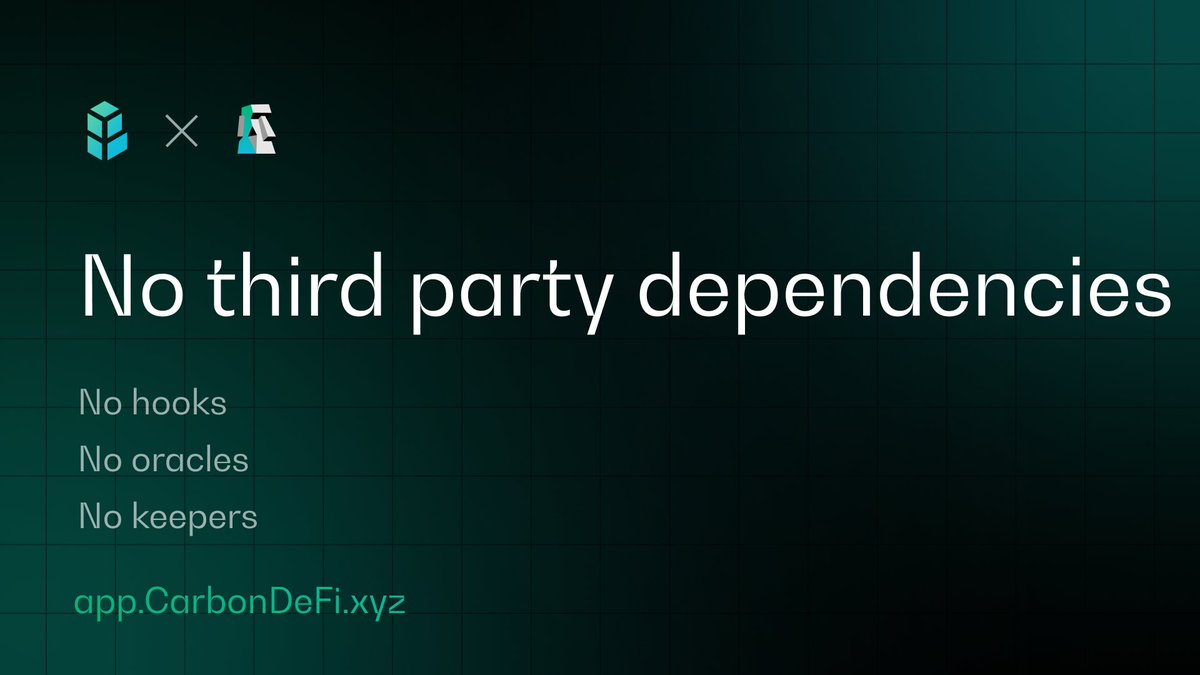This means less complexity which translates to more efficient smart contracts which in turn lead to lower gas cost when it comes to interacting with the protocol.
This is important for both makers and takers that are interacting with the protocol on a frequent basis. For fully onchain orderbook like DEXs such as Carbon, it is an important consideration to take into account.
Note, while you can replicate the functionality of Carbon DeFi with hooks, the cost of the extra complexity (i.e. external smart contracts) make it more expensive to interact with than a protocol that has the functionality built into it natively.
Carbon DeFi was built differently.
It is the only DEX to offer:
• Onchain Maker-style Limit Orders
• Scaling in/out with one-directional Range Orders
• Automated “buy low, sell high” with Recurring Orders
• Auto-compounding Concentrated Liquidity
All native to the protocol — with zero hooks, zero oracles, zero keepers.
For users, that means no third-party risk. No third-party costs. No hidden points of failure.
@CarbonDeFixyz — DeFi done right.

1.44K
10
The content on this page is provided by third parties. Unless otherwise stated, OKX is not the author of the cited article(s) and does not claim any copyright in the materials. The content is provided for informational purposes only and does not represent the views of OKX. It is not intended to be an endorsement of any kind and should not be considered investment advice or a solicitation to buy or sell digital assets. To the extent generative AI is utilized to provide summaries or other information, such AI generated content may be inaccurate or inconsistent. Please read the linked article for more details and information. OKX is not responsible for content hosted on third party sites. Digital asset holdings, including stablecoins and NFTs, involve a high degree of risk and can fluctuate greatly. You should carefully consider whether trading or holding digital assets is suitable for you in light of your financial condition.


